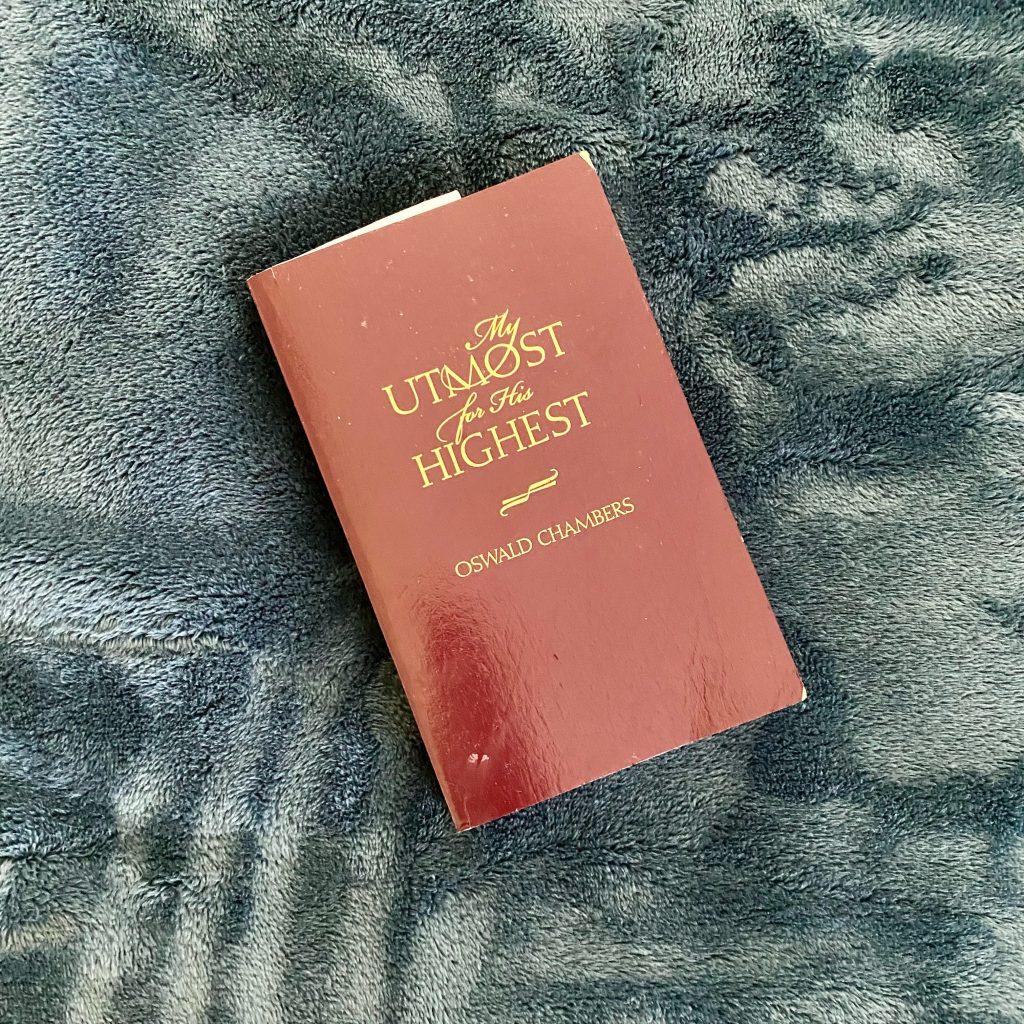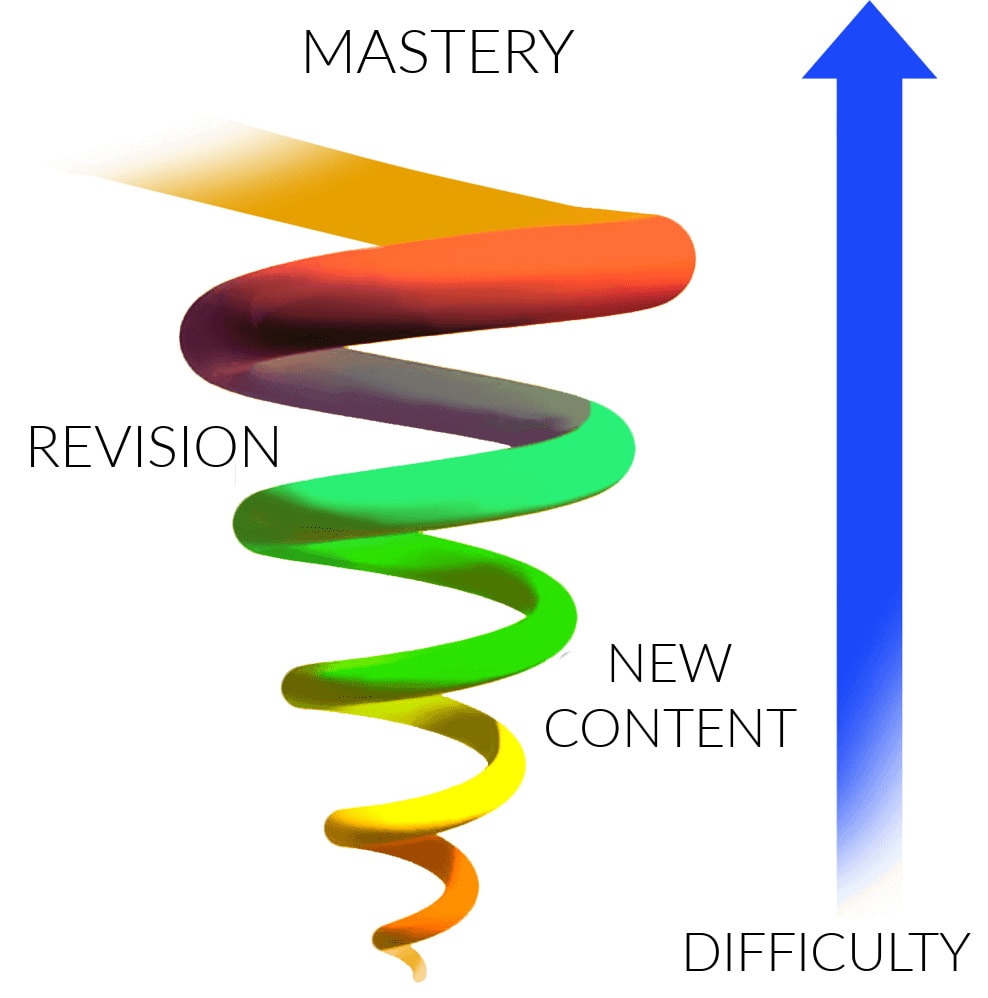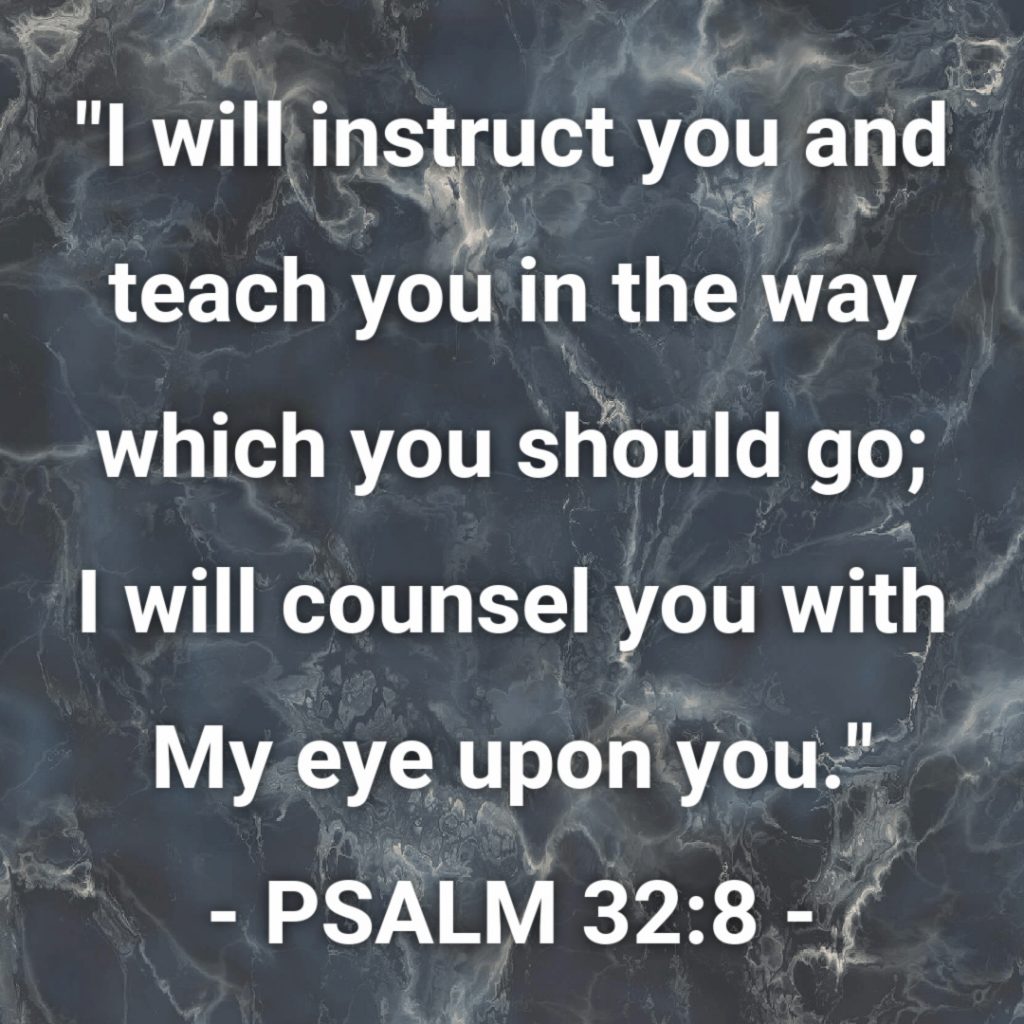I’m reading through Oswald Chambers’ My Utmost for His Highest this year. It’s not my first time through this classic devotional: the copy I’m reading was a gift from my youth group ministry team, one of dozens of pocket-sized devotionals wrapped and ceremoniously distributed to each member of the graduating class of 2002.
I started reading through My Utmost that summer between high school and college, beginning (uncharacteristically) in the book’s center (to align with the June graduation date), and continuing to read through my freshman year of college. The book found a home inside the zippered front pocket of my Bible cover, accompanying me on our family cruise to Alaska that summer and making its way into the backpack I carried into my Freshman dorm room that August and back home the following May.

Though I clearly recall opening the devotional each night before bed, I remember almost none of the specifics of the book’s content. Reading it today, each passage feels revelatory, Chambers’ insights seeming to make fresh impressions though I’m certain I’ve encountered these words before. The proof of my previous reading can bee seen in the meticulous blue lines scattered across each page—noteworthy passages underlined using the straight edge of the small ruler that served as my bookmark. (Side note: I’m struck by the shockingly perfectionistic tendencies of my young adult self, and grateful that time has softened these idiosyncrasies: I now brazenly freehand the highlights in my books.)
The devotional itself is, of course, phenomenal, but I am finding the act of revisiting it just as fascinating. Nineteen years of experiences and maturity have cast entirely new meaning on old words, and it has been interesting to note the passages that stood out to me all those years ago. Some of the words I deemed important then would not have jumped out to me today; they held a meaning for me as a teen that doesn’t ring quite as profoundly two decades on. Other passages not deemed highlight-worthy when I was a late adolescent are some of the most impactful for me now as I read them in middle age.
Engaging with My Utmost in this way has left me in awe of the Lord—not just of the actual messages He has spoken (and is speaking) into my life, but also of the ways He has chosen to speak. My relationship with God, and therefore my understanding of Him, is dynamic, following the ebb and flow of my own maturation as He increases my awareness of Him as my Father, my Creator, my Shepherd, my Teacher, my Friend. I see how He has come alongside me in each stage of my development, meeting me where I was then and gently guiding me to each subsequent stage.
When I was an elementary school teacher, I witnessed first-hand the benefits of a “spiral education.” This type of curriculum introduces students to the basic tenets of a subject or idea, with further details being added over time as teacher and students spiral back to the skill, revisiting the concept at increasingly sophisticated levels over an extended period of time.

I love thinking of God’s work in us in this way: He introduces us to new ideas and beliefs without expecting us to master them right away. Over time He provides multiple opportunities to build up our faith, layering new understandings upon that sturdy foundation, and always lifting us into higher levels of knowing Him.
As I have consistently abided in the Lord over the years, regularly absorbing Scripture and other faith teachings, there have been aspects of His message that were kept hidden until I was ready to hear them. Other portions of His communications were planted as seedlings that have been cultivated and pruned into established values and beliefs that now hold a prominent place in my personal faith garden. I can only assume that faint tracks are being laid now that will wear into deepened grooves in the future.
Through the simple act of revisiting an old book, God is growing my understanding of who He is as a teacher: He is patient and thoughtful, attentive to my progress and my unique needs as His pupil, refusing to let me remain stagnant while never stretching me past capacity.
In his commentary on the nature of God’s wisdom, Oswald Chambers writes “To receive means you have come into the relationship of a child of God, and now you perceive with intelligent and moral appreciation and spiritual understanding that these things come from God.” I underlined those lines on June 9, 2002. And on June 9, 2021, I was able to more fully perceive my maturity as a child of God, appreciating these understandings more completely than before. How exciting to anticipate how much more of Him I will understand when I circle back to these words nineteen years into the future.
